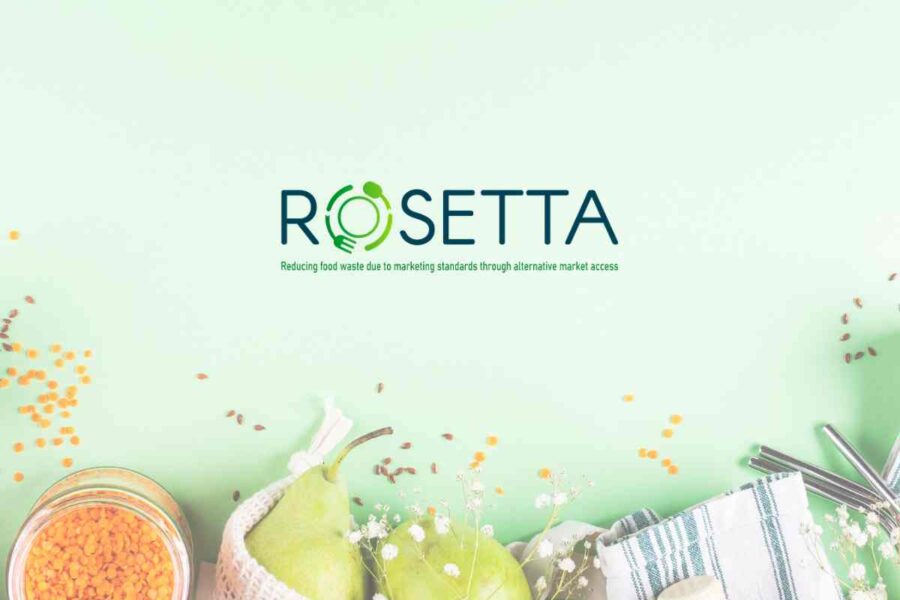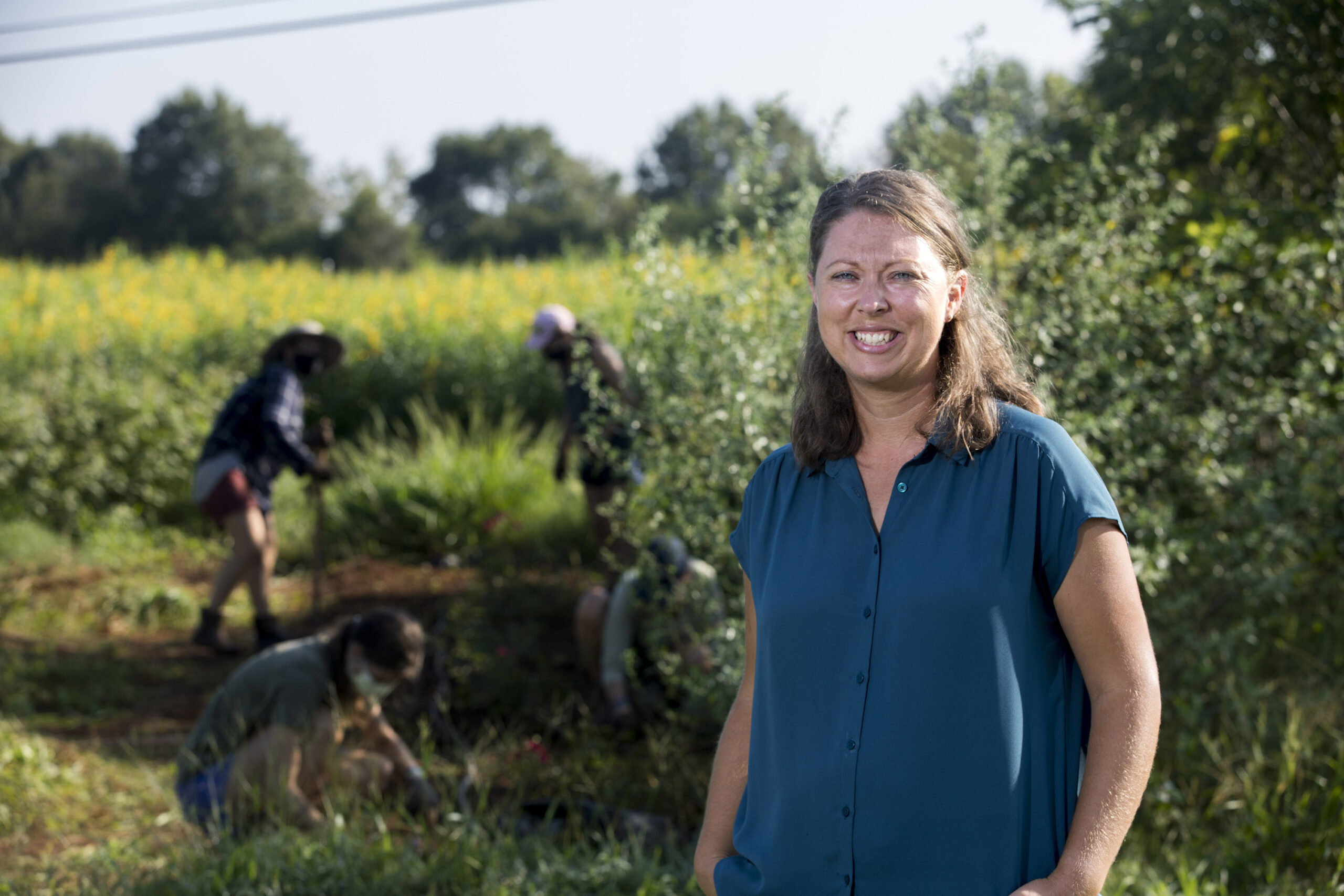
A PROJECT TO UTILIZE WASTE FROM RICE FARMS AS BIOFUEL
Introduction
A project has been launched to utilize waste from rice farms as biofuel. This initiative is a collaboration between the Southeast Asian Regional Center for Graduate Study and Research in Agriculture (Searca), Straw Innovations Ltd., Koolmill Systems, and Aston University in the United Kingdom.
The Rice Straw Biogas Hub (RSBH) Project
The project, known as the Rice Straw Biogas Hub (RSBH), aims to convert rice farm waste into biofuel. By doing so, it addresses the issue of waste management while also contributing to sustainable development.
Partnerships
The collaboration between Searca, Straw Innovations Ltd., Koolmill Systems, and Aston University highlights the importance of partnerships in achieving the Sustainable Development Goals (SDGs). By working together, these entities can leverage their expertise and resources to create innovative solutions for sustainable agriculture.
Impact on SDGs
The RSBH project aligns with several SDGs, including:
- SDG 7: Affordable and Clean Energy – By utilizing rice farm waste as biofuel, the project contributes to the goal of ensuring access to affordable, reliable, sustainable, and modern energy for all.
- SDG 9: Industry, Innovation, and Infrastructure – The project promotes innovation in waste management and biofuel production, supporting sustainable industrialization and infrastructure development.
- SDG 12: Responsible Consumption and Production – By converting agricultural waste into biofuel, the project promotes responsible consumption and production patterns, reducing waste and environmental impact.
- SDG 13: Climate Action – The utilization of biofuel from rice farm waste helps reduce greenhouse gas emissions, contributing to efforts to combat climate change.
Conclusion
The Rice Straw Biogas Hub (RSBH) project is an important initiative that demonstrates the potential of utilizing agricultural waste for sustainable development. Through partnerships and a focus on the SDGs, this project contributes to addressing environmental challenges and promoting a more sustainable future.
SDGs, Targets, and Indicators
1. Which SDGs are addressed or connected to the issues highlighted in the article?
- SDG 7: Affordable and Clean Energy
- SDG 9: Industry, Innovation, and Infrastructure
- SDG 12: Responsible Consumption and Production
The article discusses a project that aims to utilize waste from rice farms as biofuel. This directly relates to SDG 7, which focuses on ensuring access to affordable, reliable, sustainable, and modern energy for all. By using rice farm waste as biofuel, the project contributes to the development of clean and renewable energy sources.
The project also involves collaboration with entities from the United Kingdom, indicating a focus on innovation and international cooperation. This aligns with SDG 9, which aims to build resilient infrastructure, promote inclusive and sustainable industrialization, and foster innovation.
Additionally, the use of waste from rice farms as biofuel promotes responsible consumption and production practices, which is a key objective of SDG 12.
2. What specific targets under those SDGs can be identified based on the article’s content?
- SDG 7.2: Increase substantially the share of renewable energy in the global energy mix.
- SDG 9.4: Upgrade infrastructure and retrofit industries to make them sustainable.
- SDG 12.5: Substantially reduce waste generation through prevention, reduction, recycling, and reuse.
The project’s aim to utilize waste from rice farms as biofuel contributes to the target of increasing the share of renewable energy in the global energy mix (SDG 7.2). By converting agricultural waste into biofuel, the project helps reduce reliance on fossil fuels and promotes the use of sustainable energy sources.
The collaboration between different entities, including an international university, indicates a focus on upgrading infrastructure and fostering innovation (SDG 9.4). The project aims to develop new technologies and processes for converting rice farm waste into biofuel, contributing to sustainable industrialization.
Furthermore, by utilizing waste from rice farms as biofuel, the project aligns with the target of reducing waste generation through prevention, reduction, recycling, and reuse (SDG 12.5). Instead of allowing the rice farm waste to go to waste or contribute to environmental pollution, the project finds a productive and sustainable use for it.
3. Are there any indicators mentioned or implied in the article that can be used to measure progress towards the identified targets?
Yes, the article mentions the use of rice straw as a source of biofuel. This can be considered an indicator of progress towards the targets mentioned above. The amount of rice straw utilized and the corresponding increase in renewable energy generation can be measured to assess the project’s impact on SDG 7.2. Similarly, the development of new technologies and processes for converting rice farm waste into biofuel can be monitored to track progress towards SDG 9.4. Lastly, the reduction in waste generation from rice farms and the increase in biofuel production can be indicators of progress towards SDG 12.5.
4. SDGs, Targets, and Indicators
| SDGs | Targets | Indicators |
|---|---|---|
| SDG 7: Affordable and Clean Energy | 7.2: Increase substantially the share of renewable energy in the global energy mix. | – Amount of rice straw utilized as biofuel – Increase in renewable energy generation |
| SDG 9: Industry, Innovation, and Infrastructure | 9.4: Upgrade infrastructure and retrofit industries to make them sustainable. | – Development of new technologies and processes for converting rice farm waste into biofuel |
| SDG 12: Responsible Consumption and Production | 12.5: Substantially reduce waste generation through prevention, reduction, recycling, and reuse. | – Reduction in waste generation from rice farms – Increase in biofuel production |
Copyright: Dive into this article, curated with care by SDG Investors Inc. Our advanced AI technology searches through vast amounts of data to spotlight how we are all moving forward with the Sustainable Development Goals. While we own the rights to this content, we invite you to share it to help spread knowledge and spark action on the SDGs.
Fuente: manilatimes.net

Join us, as fellow seekers of change, on a transformative journey at https://sdgtalks.ai/welcome, where you can become a member and actively contribute to shaping a brighter future.






